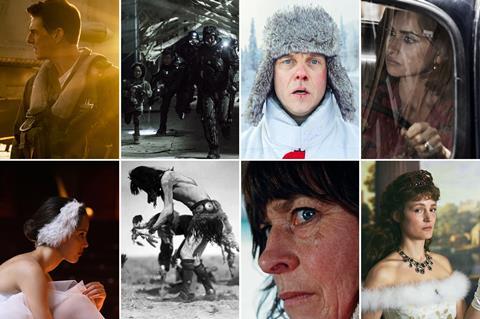
There are still two months to go until the 75th edition of the Cannes Film Festival kicks off, returning to a more habitual May 17-28 slot after being cancelled in 2020 and then moved to July in 2021 due to the pandemic, but prediction season is in full swing.
Expectations are high that the festival, its Marché du Film, and the parallel sections will roar back into life this year after 2021’s jubilant but smaller summertime edition. Speculation around which films are likely to make the cut ramped up last week with confirmation out of the US that both Tom Cruise tentpole Top Gun: Maverick and Baz Luhrmann’s Elvis will be debuting on the Croisette.
The submission process for Official Selection officially closed on Friday (March 18) ahead of the traditional press conference in Paris on April 14.
Cannes Critics’ Week also set a March 18 submission deadline, while Directors’ Fortnight closed submissions on March 17 (but will be accepting material until April 8).
As filmmakers, producers and sales agents rush to get in final submissions, Screen has been touching base with its network for a wider sweep of what has been submitted and stands a chance of a Cannes debut, either in Official Selection or one of the parallel sections.
Ukraine
Given that most of Ukraine’s filmmakers and producers are currently involved in defending their country in the face of the Russian invasion, it would be short of miraculous if any managed to submit features and attend the festival.
Screen has had confirmation, however, that Pamfir, the debut feature of one of Ukraine’s most promising young directors, Dmytro Sukholytkyy-Sobchuk, has been submitted thanks to the combined efforts of producer Oleksandra Kostina at Kyiv-based Bosonfilm and French co-producer Laura Briand at Les Films d’Ici. The film revolves around an impoverished labourer who decides to boost his earnings by undertaking a one-off bootlegging job which puts him in the crosshairs of a ruthless crime gang.
Cannes regular Sergei Loznitsa archive documentary The Natural History of Destruction, exploring the impact and legacy of allied air raids over Germany during World War Two, has also been submitted. Loznitsa was last at Cannes with Donbass in 2018, which debuted in Un Certain Regard winning him best director.
North America
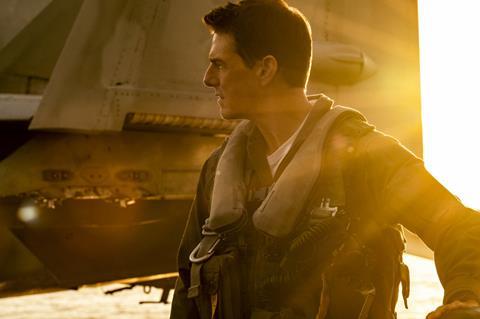
From the US, several Hollywood films have already been confirmed by industry sources for the line-up and will likely play Out of Competition. Tom Cruise sequel Top Gun: Maverick from Paramount/Skydance and Baz Luhrmann’s Elvis are headed to the Croisette.
George Miller’s Three Thousand Years Of Longing starring Idris Elba and Tilda Swinton has also been named as a Hollywood selection and there is unconfirmed talk that the film will open Cannes. FilmNation licensed North American rights to MGM.
At time of writing, the sense among sources was that Thierry Frémaux and his team are still tearing through a vast submissions list and few slots have been confirmed. It has been suggested, though, that James Gray’s coming-of-age drama Armageddon Time starring Anne Hathaway, Jeremy Strong and Anthony Hopkins could land a slot. Gray’s The Yards, We Own The Night, Two Lovers and The Immigrant debuted in Cannes. Focus Features holds US rights as well as another potential selection, Agnieszka Smoczynska’s Silent Twins, a drama about the intense connection between twin sisters that stars Letitia Wright.
Wes Anderson’s Asteroid City would be a solid launchpad for the French resident, whose acclaimed The French Dispatch debuted in Cannes last year. Little is known about the plot although the cast is epically high-wattage as usual and includes the mandatory Bill Murray and Tilda Swinton alongside Tom Hanks, Scarlett Johansson, Jeffrey Wright and Rupert Friend. Some sources suggest it won’t be ready in time, however, and thus will aim for an autumn launch.
Apple’s Sidney Poitier documentary on which Oprah Winfrey serves as executive producer has been in production for more than a year and would be a prestigious selection months after the iconic actor’s death in January.
Kelly Reichardt, who was last in Cannes 14 years ago with Wendy And Lucy, wrapped shooting late last year on A24’s Showing Up in which she reunites with Michelle Williams in the tale of an artist preparing for a major exhibition.
Horror wunderkind Ari Aster is in post on Disappointment Blvd., his epic profile of an entrepreneur that stars Joaquin Phoenix and was introduced by A24 to virtual Cannes buyers last year. The film would be a big draw with its director and star although there has been little talk about where it will premiere, just how A24 likes it.
Darren Aronofsky is in post on The Whale starring Brendan Fraser as a vastly overweight teacher who wants to reconnect with his daughter. The American filmmaker has only presented Requiem For A Dream on the Croisette (out of Competition in 2000) and his new film would be a catch, although Aronofsky tends to premiere his films in Venice.
From Canada, David Cronenberg has brought films to Cannes many times (the last occasion was Maps To The Stars eight years ago) and would be a strong pick with his latest, the human evolution sci-fi Crimes Of The Future starring Oscar-nominated Kristen Stewart alongside Léa Seydoux and Viggo Mortensen. While the prospect of a Cronenberg father-son bill on the Croisette would be genre cinema bliss, Screen understands Brandon Cronenberg’s vacation horror Infinity Pool with Alexander Skarsgard may not be ready in time.
Canadian director Sarah Polley’s new film Women Talking, a US film about Mennonite women at a Bolivian colony rife with sexual abuse, is another enticing prospect and stars Jessie Buckley, Rooney Mara, Claire Foy, Frances McDormand and Ben Whishaw.
There is talk of a possible slot for Quebec filmmaker Anaïs Barbeau-Lavalette’s US-set Chien Blanc, based on Romain Gary’s novel about a couple in the days after Martin Luther King Jr.’s assassination who take in a dog that seems to have been trained to attack Black people. The filmmaker’s last work Goddess Of The Fireflies premiered at the 2020 Berlinale.
Falcon Lake, Canadian actor Charlotte Le Bon’s directorial debut, is a possibility and centres on a teenager’s holiday romance. Monia Chokri stars.
Latin America
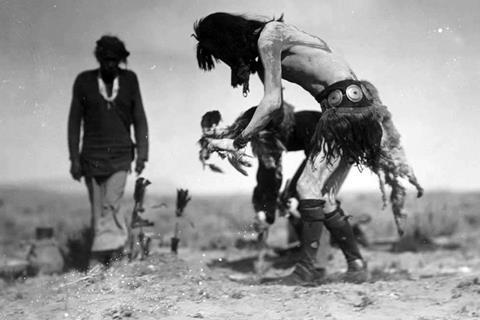
There is strong buzz around the participation of Lisandro Alonso’s Eureka, which would mark the Argentine’s return to the Croisette after 2014 Un Certain Regard selection Jauja and reunites him with Viggo Mortensen in a four-part tale about the lives of indigenous peoples of the Americas.
Laura Mora Ortega is a possibility with The Kings Of The World (Los Reyes del Mundo), the Colombian filmmaker’s follow-up to 2017 Toronto and San Sebastian selection Killing Jesus. Her latest work centres on five street kids from Medellin in search of the land that one of them inherited.
Could Mexico’s two-time directing Oscar winner Alejandro González Iñárritu bring Bardo to Cannes? Production wrapped last September on the nostalgic comedy about a journalist and filmmaker who returns to Mexico to assess his life and country. It marks Iñárritu’s follow-up to The Revenant and his first film to shoot in Mexico since 2010’s Biutiful, which was the filmmaker’s last feature to premiere in Cannes after Babel four years prior.
Chilean documentarian Patricio Guzman’s My Imaginary Country, which examines Chile’s social inequality protests in 2019, could make its debut on the Croisette after Guzman premiered three earlier films there, the last being The Cordillera Of Dreams in 2019.
Also on the list of potential slots are two features from Argentine director Santiago Mitre, whose The Summit played in Un Certain Regard in 2017. French-language dark comedy Petite Fleur is completed and stars Sergi López and Melvil Poupaud, while political drama Argentina, 1985 is in post and stars Ricardo Darin in a drama about lawyers who confront the dictatorship during Argentina’s dirty war.
Another potential selection is Mexican Lorena Padilla’s drama Martinez, in which Francesco Reyes plays a lonely man who had dedicated his life to self-fulfilment.
UK and Ireland
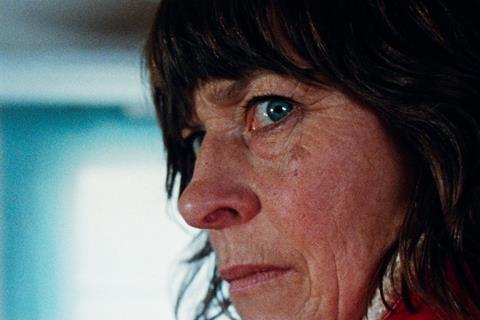
The UK had a taste of Palme d’Or glory last year thanks to Film4’s involvement in Julia Ducournau’s Titane, while Andrea Arnold’s documentary Cow and Eva Husson’s Mothering Sunday played in the new Premiere Section and Clio Bernard’s Ali & Ava and Joanna Hogg’s The Souvenir Part II debuted in Directors’ Fortnight.
UK titles tipped for a Cannes slot include Mark Jenkin’s Enys Men, his second feature after Bait which debuted in the Berlinale’s Forum in 2019 and went on to win the Bafta for outstanding debut by a British writer, director or producer. His new film is a 1970s-set horror tale set in Cornwall.
Jenna Coleman and Tom Burke star in darkly comic thriller Klokkenluider, the directorial debut of actor Neil Maskell, which could be in Cannes consideration. Produced by Stephanie Aspin and Screen Star of Tomorrow Helen Simmons for their UK company Erebus Pictures, the film shot in February-March 2021 and has completed post.
Florian Zeller’s The Son is also being mooted for a Croisette splash although an autumn festival launch would also make sense for the director’s follow-up to his Oscar-winning The Father. Vanessa Kirby and Hugh Jackman co-star as a couple with a newborn alongside Laura Dern as the ex-wife who turns up with the father’s troubled teenage son.
The UK is also anticipated to be present in Cannes as a co-producer on Swedish director Ruben Östlund’s Triangle Of Sadness and Dutch filmmaker Sacha Polak’s UK-shot, English-language drama Silver Haze.
France
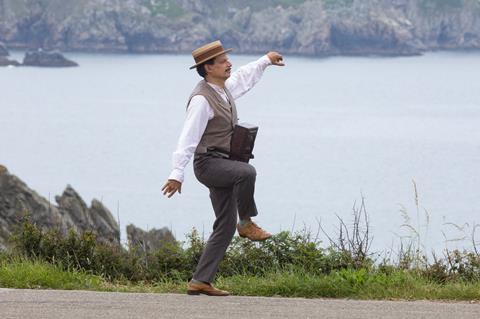
Can France repeat last year’s prize-winning run which saw Julia Ducournau’s Titane clinch the Palme d’Or and Leos Carax win best director for Annette? As ever a raft of French titles will be ready in time for Official Selection as well as the parallel sections.
Cannes regular Arnaud Desplechin is tipped to return with Brother And Sister, co-starring Marion Cotillard and Melvil Poupaud as estranged siblings forced to meet by the death of their parents. Desplechin, who has been in Competition six times, screened his last film Deception in the new Cannes Premieres section in 2021.
Other potential Cannes returnees include Christophe Honoré with coming-of-age tale Le Lycéen; Rebecca Zlotowski with Other People’s Children, starring Virginie Efira as a happily childless woman who forms a strong bond with her new partner’s young daughter; Alice Winocour’s Revoir Paris, also starring Efira, this time as a journalist dealing with the aftermath of a terror attack; and veteran filmmaker Patricia Mazuy with Saturn Bowling. Mazuy was last in Official Selection in 2000 with costume drama Saint Cyr which debuted in Un Certain Regard.
Established filmmakers vying for their first Official Selection outing include Noémie Lvovsky’s with 1920s-set musical comedy The Great Magic; Sebastien Marnier with The Origin Of Evil, starring Laure Calamy as a factory worker who discovers her biological father is a wealthy businessman; and Rachid Hami with For My Country about a French-Algerian family’s fight for justice following the death of their youngest son during an initiation ritual at a prestigious military academy.
Directors’ Fortnight regular (Fatima, Amin) Philippe Faucon’s new film Les Harkis, about the Algerians who fought in the French army during their country’s war of independence in the 50s and 60s but were then abandoned by France when it withdrew from the country, should also be ready in time for a Cannes outing.
There is also strong buzz around a raft of second features: Léa Mysius’s The Five Devils, starring Adèle Exarchopoulos as the mother of a girl with a hyperacute sense of smell; Alice Diop’s Saint-Omer, about a pregnant writer following the trial of a woman accused of infanticide as research for a contemporary retelling of the Greek myth of Medea; and Clément Cogitore’s Son Of Ramses (aka Gold Drop) starring Karim Leklou as a man who makes a living as a fake clairvoyant in Paris’s multicultural La Goutte d’Or neighbourhood.
First films in the mix include Jimmy Laporal-Trésor’s 1980s France-set drama Rascals, about a group of ethnic minority youngsters who take on an ultra-violent gang of right-wing skinheads, and Lola Quivoron’s Rodeo, about a young woman trying to make it into the male-dominated dirt bike scene.
Nordics
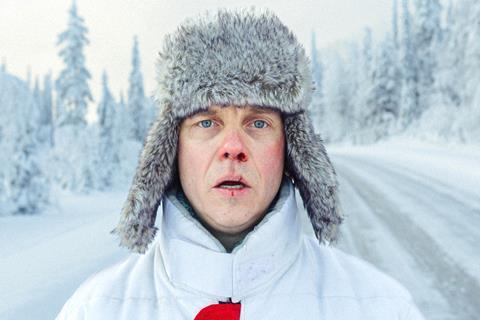
The Nordics enjoyed a high-profile Cannes 2021 with the Grand Prize win for Finnish director Juho Kuosmanen’s Compartment No. 6 and the best actress prize for Renate Reinsve for The Worst Person In The World.
Key Nordic titles in the mix for Cannes this year are Swedish director Ruben Östlund’s aforementioned dark comedy Triangle Of Sadness and Denmark-based Iranian-Swedish director Ali Abbasi’s Iran-set, Jordan-shot serial killer thriller Holy Spider.
Further hopefuls out of Sweden include Tarik Saleh with Cairo-set political thriller Boy From Heaven and Milad Alami’s Opponent about an Iranian man living in exile in Sweden who joins his local wrestling club against his wife’s wishes.
Further Danish titles with Cannes potential, particularly for one of the parallel sections, include Katrin Brocks’s The Great Silence and Malou Reymann’s Unruly. There’s also speculation over whether episodes from Lar von Trier’s upcoming hospital series The Kingdom Exodus could be showcased in the same way as Jane Campion’s Top Of The Lake was initially presented.
From Finland, the team behind Compartment No. 6 and 2016 Un Certain Regard winner The Happiest Day In The Life Of Olli Mäki could also be back with director Mikko Myllylahti’s debut feature The Woodcutter’s Story about a man living in a small town in northern Finland who is put to the test by a series of dreadful events.
Myllylahti previously took co-writing credits on The Happiest Day In The Life Of Olli Mäki and showed his short film The Tiger in Cannes Critics’ Week in 2018.
Icelandic titles that could be ready in time for a Cannes splash include Ása Helga Hjörleifsdóttir’s A Letter From Helga, about the forbidden affair between a young farmer and an aspiring poet in a remote fjord community in the 1940s.
Norwegian films with festival potential currently in post-production include epic wartime tales War Sailor and Narvik and debut feature Explosions In The Heart, a polyamorous love story by Norwegian music-video director Yenni Lee starring Danish actress Victoria Carmen Sonne and Swedish rapper Silvana Imam.
Benelux
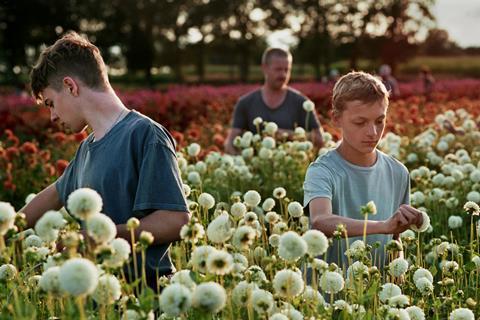
Two-time Palme d’Or winners Jean-Pierre and Luc Dardenne are currently finishing Tori And Lokita, about two young refugees who find strength in their friendship.
There is also strong buzz out around Moroccan-born, Belgian directing duo Adil El Arbi and Billal Fallah’s new film Rebel, exploring extremism through the prism of a Belgian-Moroccan teenager looking for an anchor following the death of his father. It marks a return to home territory for the filmmakers after Bad Boys For Life.
Other titles in the mix include Jessica Woodworth’s Sicily-set, black-and-white Fortress, an adaptation of Dino Buzzati’s classic novel The Tartar Steppe, about a soldier waiting for action in a remote military outpost; and Lukas Dhont’s Close, about two teenage friends whose close relationship is questioned by schoolmates. Dhont’s feature debut Girl won the Camera d’Or as well as the Queer Palm in 2018.
Actress Veerle Baetens’s feature directorial debut When It Melts is believed to be angling for a Cannes splash. Other buzzy first films potentially in the mix include Emmanuelle Nicot’s daring debut Dalva which explores the ramifications of incest and child grooming.
Potential Dutch entries include Sacha Polak’s aforementioned Silver Haze. Spinning out of Polak’s Dirty God, the Dutch-UK co-production reunites her with that film’s breakout star Vicky Knight and is inspired by events in the actress’s life. She stars as a young woman who suspects her mother’s best friend of setting fire to the pub she was sleeping in as a child.
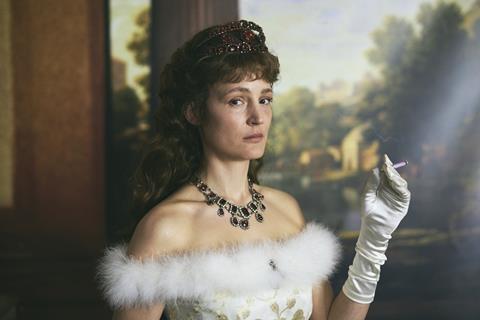
Austria and Germany
German films in the Cannes mix include Emily Atef’s More Than Ever starring Vicky Krieps as a French woman who heads to Norway in search of new horizons on being diagnosed with a serious lung condition. Gaspar Ulliel is also in the cast, in his last role before his tragic death in a skiing accident earlier this year.
Fatih Akin’s hip-hop gangster drama Rheingold is also in post-production. The German-Turkish director was last in Cannes in 2017 with In The Fade which played in Competition and won Diane Kruger the best actress prize.
There is also Kilian Riedhof’s drama You Will Not Have My Hate, an adaptation of Antoine Leiris’ 2016 memoir about how he and his young son coped in the days and weeks after his wife was killed in the Bataclan terror attack in Paris in 2015.
First film hopefuls include Anna Roller’s Dead Girls Dancing, about three recent high-school graduates who pick up an intriguing backpacker while on an Italian road trip. The German-English-Italian-language drama features a buzzy young cast comprising Germany’s Luna Jordan (Fox In A Hall), Noemi Nicolaisen (We Children From Bahnhof Zoo), Katharina Stark and Italian actress Sara Giannelli.
Potential Austrian selections include Marie Kreutzer’s costume drama Corsage starring Vicky Krieps as 19th-century Empress Elisabeth of Austria.
Italy
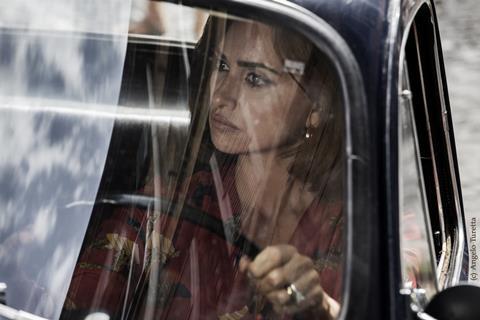
Could this be the year Luca Guadagnino finally makes it to Cannes with a feature? Bones And All, co-starring Timothée Chalamet and Chloe Sevigny as two outcasts travelling through Ronald Reagan’s America, is now in post. His short film The Staggering Girl played in Directors’ Fortnight in 2019, and he had been due to return to the parallel section in 2020 with his TV series We Are Who We Are until that plan was scuppered by the pandemic.
There is also buzz around Emanuele Crialese’s L’Immensità starring Penelope Cruz as a family matriarch in 1970s Rome. Crialese was last on the Croisette in 2002 when his second film Respiro won Cannes Critics’ Week.
Other hopefuls include Roberto De Paolis’s second feature Princess, about a young Nigerian woman making her living as a street prostitute in Italy. The director’s first film Pure Hearts played in Directors’ Fortnight in Cannes in 2017.
There are also hopes for Pietro Marcello’s Normandy-set French-language drama Scarlet about a young woman brought up by her widowed father at a time of great innovation.
First films out of Italy potentially in the mix include actress Jasmine Trinca’s debut feature Marcel! about a young girl who vies for her mother’s affections with their pet dog. Alba Rohrwacher, child actress Maayane Conti and veteran star Giovanna Ralli feature in the cast. It expands on Trinca’s semi-autobiographical 2020 short Being My Mom which also starred Rohrwacher and Conti. Trinca, a regular at Cannes for her acting career, won the Un Certain Regard best actress prize in 2017 for her performance in Fortunata.
Spain
Spain’s rising female filmmakers have been in the spotlight this year thanks to Carla Simon’s Berlinale Golden Bear win for Alcarras in February as well as a slew of awards for Clara Roquet’s Libertad at Catalonia’s recent Gaudi awards.
This trend could continue into Cannes with Pilar Palomero’s La Maternal, about a teenager on the cusp of unplanned motherhood, and Elena Lopez Riera’s The Water about a village overshadowed by a legend that women are destined to be carried off each time there is a flood.
From more established filmmakers, Carlos Vermut is currently finishing post-production on his fourth feature Manticora, about a videogame designer with a dark secret, who thinks he has found salvation in a new girlfriend.
Central and Eastern Europe
Romanian director Cristian Mungiu’s R.M.N. is expected to be ready for a Cannes debut. Described by Mungiu as a “plea for tolerance”, it revolves around a small village in Transylvania where a fear of foreigners boils over. It will be exactly 20 years since Mungiu’s Occident debuted in Directors’ Fortnight, ahead of his Palme d’Or win for 4 Months, 3 Weeks And 2 Days in 2007, best screenplay award for Beyond The Hills in 2012 and best director prize for Graduation in 2016.
Also out of Romania, Sebastian Mihăilescu’s debut feature Mammalia (previously announced as Double Happiness) is also angling for a Cannes slot. The surreal drama explores contemporary masculinity through a man who wakes to discover his penis has disappeared during the night. Andrei Epure, whose short film Intercom 15 debuted in Critics’ Week last year, takes a co-writer credit.
Other buzzy titles known to have been submitted out of the region include Hungarian-Romanian filmmaker Cristina Grosan’s Czech-Hungarian production Ordinary Failures. The psychological drama revolves around three women whose lives are irrevocably transformed over the course of one day, while their city is rocked by mysterious explosions.
Further titles with potential out of Hungary include Ádám Császi’s dark comedy Three Thousand Numbered Pieces, about a white director who tries to mount a play with marginalised Roma actors and in the process exposes fault lines of racism and white guilt, and Fanni Szilágyi’s first feature Not A Thing about twin sisters who fall in love with the same man.
Southeastern Europe
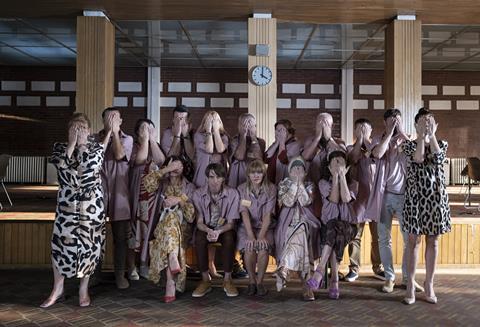
North Macedonian director Teona Strugar Mitevska is currently finishing The Happiest Man In The World, about a woman and a man who experienced the Siege Of Sarajevo from different sides and are thrown together through a dating event years later.
Greek director Panos H. Koutras is being tipped for a return to the Croisette with fifth feature Dodo, revolving around a formerly grand Athens family in decline. Koutras’s last feature Xenia premiered in Cannes Un Certain Regard in 2014.
Russia
Cannes and the parallel sections all said in the early days of Russia’s invasion of Ukraine they were open to submissions by Russian filmmakers without strong links to president Vladimir Putin’s regime, even if Russian government bodies will not be welcome this year.
Russian producers contacted by Screen hadn’t decided at that stage whether to submit their films amid the current uncertainty over the direction of the invasion.
One film expected to be welcomed if it’s completed in time and submitted is Kirill Serebrennikov’s Tchaikovsky’s Wife, exploring the personal life of the iconic Russian composer. Dissident director Serebrennikov was not allowed to travel to Cannes for the screening of his Palme d’Or contenders Petrov’s Flu and Leto.
Another Cannes regular Kantemir Balagov has left Russia but has yet to start production on his previously announced feature Monica.
Middle East and North Africa
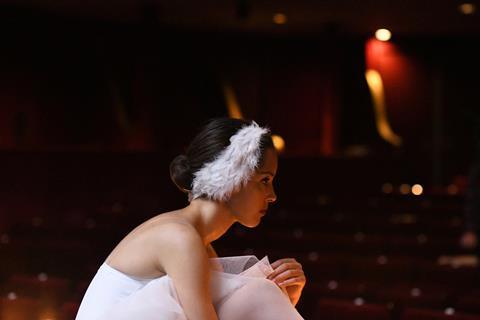
Middle Eastern and North African cinema enjoyed a high-profile Cannes in 2021, with Nabil Ayouch as the first Moroccan filmmaker in Competition since 1962 with Casablanca Beats, while Egyptian director Omar Zohairy’s debut feature Feathers won Cannes Critics’ Week.
It could be another good year for Morocco. Buzzy titles expected to be ready out of the North African country include director Maryam Touzani’s Blue Caftan about a couple forced to take on board the husband’s homosexuality. Her debut film Adam premiered in Un Certain Regard in 2019.
Other Moroccan hopefuls include Hicham Ayouch’s satirical comedy Abdelinho about a man who gets on the wrong side of a televangelist preacher, and Faouzi Bensaidi Sahara-set western Deserts about two friends who are banished to the desert as punishment for their poor performance as extortionists where they meet a mysterious man called Fugitive.
Buzzy first features out of Morocco include Sofia Alaoui’s production Oum, about a young pregnant woman whose life with her stifling in-laws is changed by a supernatural event, and Yasmine Benkiran’s Queens, about a repeat offender who breaks out of prison to reunite with her young daughter, hijacks a lorry and its female driver and goes on the run across the Atlas valley.
Other MENA titles tipped for a Cannes splash this year include Algerian-French director Mounia Meddour’s second film Houria about a talented dancer whose career aspirations are cut short by a violent attack. Meddour’s first film Papicha premiered to critical acclaim in Un Certain Regard in 2019.
Also out of Algeria, Damien Ounouri’s is close to completing ambitious period drama The Last Queen which is inspired by the legendary 16th-century figure of Princess Zephira and her struggle to defend her people from the infamous pirate Barbarossa.
From Palestine, Maha Haj is also racing to finish post-production on her second feature Mediterranean Fever. The dark comedy revolves around a depressed aspiring writer who befriends his neighbour and asks him to help him commit suicide. Haj’s first feature Personal Affairs debuted in Un Certain Regard in 2016.
Out of Tunisia, there is strong buzz around Erige Sehiri’s Under The Fig Trees, about a group of teenagers who spend their summer working on the fig harvest in northwestern rural Tunisia, and Am-Bi-Gu-I-Ty, a fiction feature exploring what it means to be born an intersex person in the country by Nada Mezni Hafaiedh.
Egyptian-UK filmmaker Lotfy Nathan’s debut fiction feature Harka (previously known as Contra), a Tunisia-set, post-revolutionary tale revolvoing around the precarious life of a young contraband gas seller forced to take charge of his two younger sisters after their father’s sudden death, is also expected to be ready in time.
Out of Iraq, Ahmed Yassin Al Daradji’s Hanging Gardens has been submitted. The debut feature of the London Film School alumnus revolves around a young rubbish picker who rescues a sex doll from a Bagdad dump.
Lebanese director Ali Cherri’s Sudanese-set drama The Dam is also drawing interest. It follows a traditional brickyard worker who spends his evenings secretly building a mysterious construction in the desert while the Sudanese revolution ferments in the background.
Israel
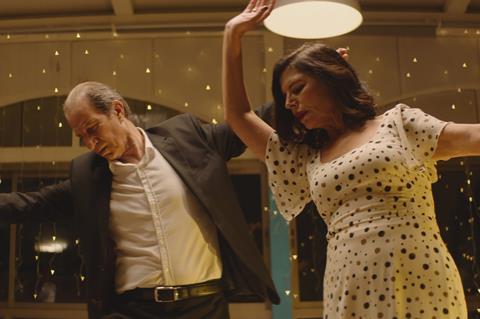
Israel enjoyed a high-profile Cannes in 2021 with Nadav Lapid winning the Jury Prize for Ahed’s Knee, in ex aequo with Apichatpong Weerasethakul’s Memoria, while Eran Kolirin’s Let There Be Morning played in Un Certain Regard and Ari Folman’s Where Is Anne Frank debuted Out of Competition.
Israeli submissions this year include Matan Yair’s third feature A Room Of His Own about a teenage boy forced to share a room with his mother as his parents’ marriage disintegrates and his father takes his room. Yair’s debut feature Scaffolding premiered in the Acid sidebar in 2017 and went to play in Toronto’s Discovery section.
This year’s submissions include Moshe Rosenthal’s solo feature debut, the comedy-drama Karaoke, starring Lior Ashkenazi as a charismatic former modelling agent who casts a strange spell on a middle-class couple in his new apartment block.
Michal Vinik’s Valeria Gets Married is about a Ukrainian woman who gets cold feet about her impending marriage to an Israeli man she met online. Vinik made waves internationally with her 2015 drama Blush about a relationship between two Israeli schoolgirls.
Other entries out of Israel include Syrian director Ehab Tarabieh’s Israeli-German co-production The Taste Of Apples Is Red which is set against the background of the director’s native Golan Heights and revolves around two brothers who are reunited after 47 years apart.
Asia
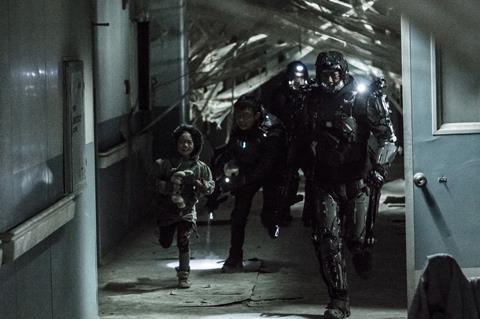
The jury is still out on how many Asian film professionals will make the trip to Cannes against a backdrop of continued waves of the Covid-19 virus and concerns over Europe’s seemingly more relaxed approach to dealing with the pandemic.
A number of Asian productions are believed to be vying for a Cannes debut nonetheless.
Hot favourites are Japanese Palme d’Or winner Hirokazu Kore-eda’s Korean-language drama Broker, about two men who have taken a child from ‘a baby box’ where parents leave offspring they are unable to raise.
Also shot in Korea, Cambodian-French filmmaker Davy Chou’s No Return has been submitted for consideration. The film revolves around an adopted French woman who travels to Korea in search of her biological parents. Chou’s debut film Diamond Island played in Critics’ Week in 2016.
Other Japanese hopefuls include Koji Fukada’s new film Love Life about a woman whose settled life with her son and new partner is disrupted by the return to her life of the boy’s deaf and homeless real father. Fukada’s last film The Real Thing was feted with the Cannes 2020 label while the director was last physically at the festival with A Missing Girl in Un Certain Regard in 2016.
Korean Cannes regular Park Chan-wook, who was last in Competition in 2016 with The Handmaiden, is also tipped to return with Decision To Leave, about a detective drawn to a mysterious woman.
Ryoo Seung-wan hasn’t returned to Cannes since Crying Fist played Directors’ Fortnight in 2005 and it remains to be seen if the director’s Smuggle – a 1970s-set action film about Korean haenyeo (‘sea women’ who deep-dive without breathing equipment) caught up in a smuggling ring – will suit Cannes’ tastes. But for the first time in a long time, he has a film ready at a time that could align with the festival’s schedule.
Elsewhere in the region, Thai director Phuttiphong Aroonpheng’s drama Morrison could be ready in time. Thai musician Hugo Chakrabongse stars as a Thai-American ex-pop star who returns to his hometown in northeastern Thailand, a place still haunted by ghosts of American GIs from the Vietnam War.
There is also Cannes buzz around Hong Kong director Ng Yuen Fai’s Warriors Of The Future. Described as Hong Kong’s most expensive sci-fi ever, it revolves around the arrival of a giant plant on earth via an asteroid that threatens destruction for the entire human race.






![The Brightest SunScreen[Courtesy HKIFF]](https://d1nslcd7m2225b.cloudfront.net/Pictures/274x183/3/5/0/1448350_thebrightestsunscreencourtesyhkiff_312678.jpg)


















No comments yet